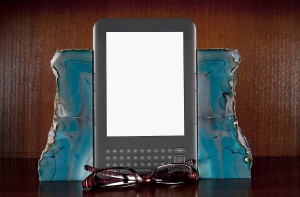-
Popular Posts
- Who Is Craig and What’s His List?
- How to Find Free Shipping E-tailers
- 5 Top Sites for Last Minute Travel Deals
- How Do Boomers and Seniors Use the Internet?
- Should You Join Facebook Now?
- Six Tips for Taking the Social Networking Plunge
- Better Bookmarking with Delicious
- Five Reasons You Can’t Afford to Dismiss Facebook and Other Social Networks
- Patient Websites Provide Bridge to Family and Friends
- About Us
Categories
site sponsors
Kindle Books Now at Your Library: Check it out!
By Marilynne Rudick on October 23, 2011
Buried in the hoopla about Amazon’s new bargain-priced Kindles and its Kindle Fire tablet is some very good news. You can now borrow ebooks in the Kindle format from public libraries. Publishers who use the EPUB format, including Barnes & Noble’s Nook, have provided libraries with ebooks for some time. But Kindle, which uses its own proprietary format, was the notable holdout.
Amazon’s decision to make Kindle books available to libraries is big news because of its market share. Over two-thirds of ebook readers now use the Kindle format. With Amazon lowering the price of its entry-level Kindle to $79, the number of people reading ebooks will grow.
While the price of ebook readers is falling, the price of ebooks is going up, with some titles topping $20. So readers will be eager to borrow ebooks from libraries.
Checking out a Kindle ebook from my library in Montgomery County, Maryland, is as easy as buying an ebook from Amazon. But best sellers and popular titles may be limited.That’s because ebooks are expensive. Libraries buy print books, often in multiples, and lend them until they fall apart. But the library can’t own an ebook. It can only purchase a license for limited use. For example, a library might acquire four licenses for The Girl with the Dragon Tattoo, meaning that only four copies can circulate. And some publishers limit the number of times an ebook can be checked out under the license: HarperCollins limits checkouts to 26. After that, the library must purchase a new license.
Even worse, some publishers, including Macmillan and Simon & Schuster, won’t make ebooks available to libraries. That’s shortsighted. I think that library borrowing will whet the public’s appetite for ebooks. Once hooked, they’ll purchase the ebooks that require a long wait and the ones their library doesn’t have.
Facing tight purchasing budgets, libraries have to choose between print books and ebook licenses. Right now, most of the money goes to print books. But that will change as demand increases. In the long run, ebooks have the potential to reduce library expenses. Ebook borrowing is completely automated. You don’t need a person to check ebooks out or reshelf them. The cost of building and maintaining libraries will be reduced, too, because ebooks don’t require shelf space.
How Do You Borrow Kindle Ebooks?
Most libraries use a middleman, such as Overdrive, to distribute ebooks. The library’s website links to the distributor’s interface, where you can search ebook holdings. When you find a title you want to borrow, you click the Kindle icon and go to the Manage Kindle page that you set up for your Kindle and check out the ebook. It will then be downloaded to your Kindle device via WiFi. If the ebook isn’t available, you can reserve it, and you’ll get an email when it comes in. You don’t have to worry about returning the book or paying fines for overdue books. Once the borrowing period expires, the ebook automatically disappears from your ereader.
Ebook borrowing from libraries is still a novelty. Hopefully as more library patrons demand ebooks, licenses will become cheaper and more ebooks will become available. Readers can put pressure on uncooperative publishers by contacting the publisher and asking why their ebooks aren’t available in libraries.
Categories: eBooks, Saving Money
Tags: Amazon, Barnes & Noble Nook, borrowing ebooks from library, eBooks, Kindle, Kindle ebooks, Kindle Fire, library ebooks, w-books
Tags: Amazon, Barnes & Noble Nook, borrowing ebooks from library, eBooks, Kindle, Kindle ebooks, Kindle Fire, library ebooks, w-books
Keep up with WebOver50. Get new posts via email:
